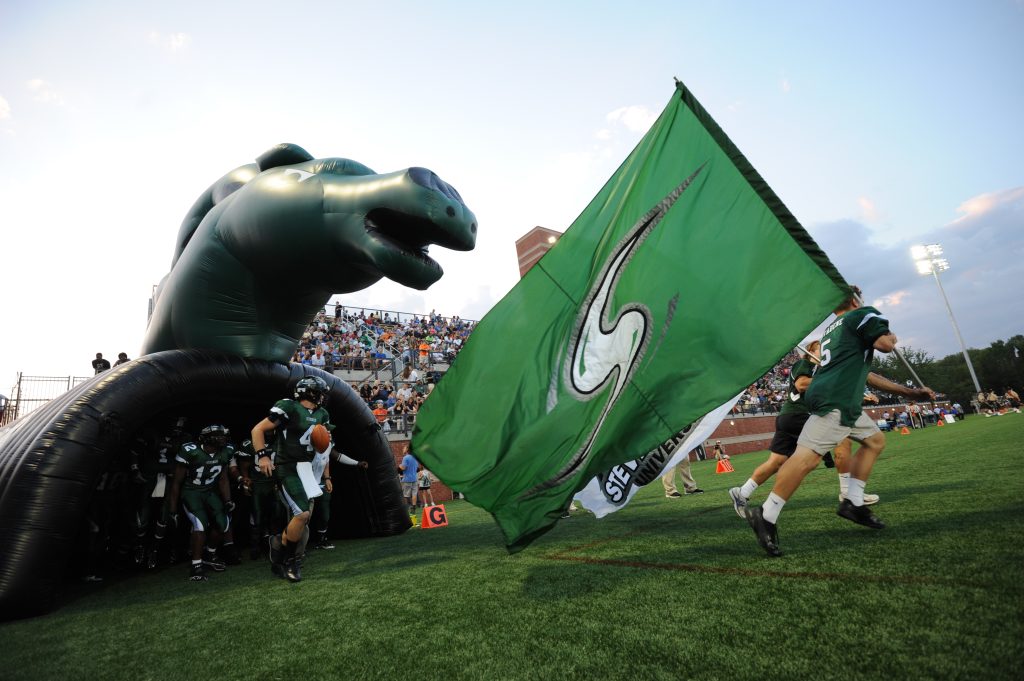Supporting Your Graduate: Tips for Parents of College Seniors
Stevenson University’s Vice President of Career Services, Sue Gordon, recently went on WBAL-AM to offer advice for parents of graduating college seniors as graduation is quickly approaching. Listen to the full interview above and read her tips below!
If you’ve talked to your college senior recently, you might have noticed a hint of stress in their voice. Between today and graduation, they are facing a mountain of papers, capstone projects, final exams, internships, student clubs and sports. There are many things to distract them from the big question: “What will I do when I graduate?” The challenge for parents is to find a way to be encouraging rather than nagging.
You can help your student navigate the transition from full-time student to new graduate, but the time to start is now, while they are still in school with easy access to resources that can help. As a long-time college career services provider, I am confident that your student’s institution is vested in your student’s success.
Have a heart-to-heart with your senior, and learn where they are in answering “what will I do when I graduate?” In my experience, students fall into one of three categories: “laser-beam focused,” “searching with direction,” and the “I don’t know” category.
The laser-beam focused students know what they want to do, and likely made a commitment to their first stop after college. Many have a job lined up or are in the final stages of interviews. For others, their first destination is graduate school. These students have already utilized their college’s career services and faculty mentors. This is the easiest category for parents – a time to celebrate your student’s accomplishment.
If your student isn’t employed yet, rest assured the majority of graduating students are searching with direction. These students have an idea of the type of job or career they seek. They may be deciding between graduate school and work. Many students are seeking employment in fields that offer “just in time employment.” For example, unlike fields in engineering and accounting, which offer fall recruitment, the field of social services typically hires when they have an opening — just when they need someone. This is true of small and mid-sized businesses, as well. If a student isn’t available until after their graduation date, they likely won’t get an offer before late spring or summer. This is normal – but your student may be intimidated by their accounting friend who had a job offer last November. Remind them it’s OK to still be seeking. For this type of student NOW is the time to apply for jobs.
If your student falls in this category, ask:
· Is their resume in tip top shape? Do they write cover letters that are targeted to the opportunity?
· Have they researched their fields of interest? Are they conducting information interviews with people in their targeted fields?
· How are they finding job opportunities? Are they networking or are they limiting themselves to online searches?
If they can’t answer these questions, their college career office can help polish their resume, cover letter, LinkedIn profile, etc. Most colleges offer online jobs-databases with positions posted directly for the students of that institution. Make sure your student is using all of the resources available to them.
Students in need of most support are the “I don’t know” students. When a friend or family member asks “What’s next?” the response is often “I don’t know. I guess I’ll do anything.” This is often accompanied by a glazed or fearful look. Sometimes when seeking jobs, these students randomly apply to anything, with the result of getting nothing. Often, they don’t even try applying for jobs. They are too overwhelmed. If your student falls into this category, understand that they are not alone, and point them to resources that can help them to answer the “What are you going to do next” question.
Check in to see how they are doing. If they are struggling with impending graduation and identifying next steps, they may benefit from their college’s counseling center – a service which may not be available upon graduation. The college career center is also a great resource. A career advisor can help the unfocused student identify possible career paths based on their strengths, interests, personality, and skills. Once a plan is identified, the career advisor will coach on job search strategy and developing professional job search materials. Sometimes, just one visit with a career coach can provide the student with the motivation they need to take their first post-graduate steps.
No matter which category your student falls in, celebrate their graduation. If they need support as they find their way, remember their college’s career center is your partner. We are all vested in your student’s success.





